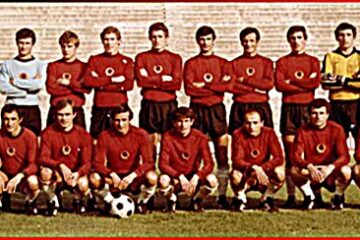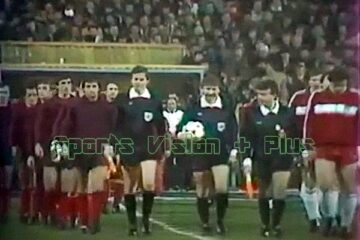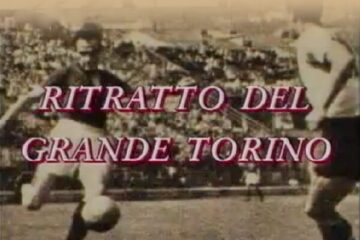(VIDEO) World Cup Qualifying’s Italy `90 | Poland – Albania, the goal in the 78th puts an end of the Albanian resistance!
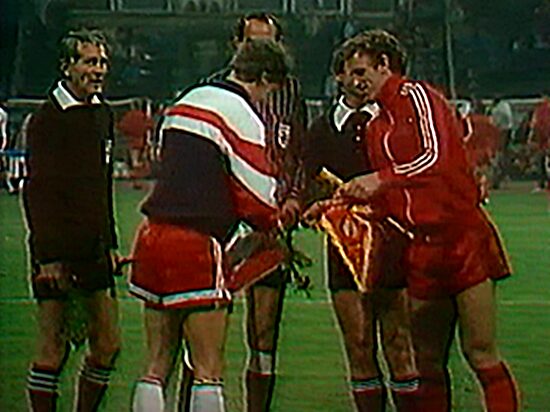
Poland – Albania, the goal in the min. 78th puts an end to the Albanian resistance!
It is October 19, 1988, the date that marks the beginning of the qualifiers for the European Continent . The Albanian national team starts its matches for the Italy `90 World Cup in Chorzow at the “Silesian” stadium in the presence of 35,000 spectators. The draw has put him in front of the Polish team. Albania is in the 2nd elimination group together with England and Sweden.
Watch the full match here as below:
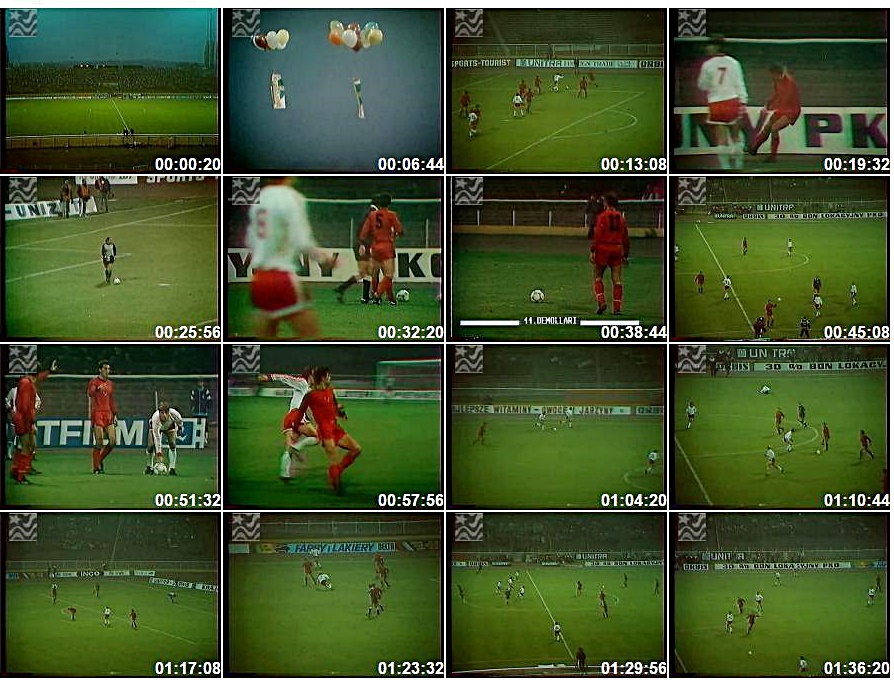
The Śląski Stadium has historically been a well-used venue for qualifying matches, although during the 1980s the Poles only played three qualifying matches here. The stadium seemed to be somewhat full, though far from full. The hosts were naturally the favorites in this challenge, and perhaps the crowd was hoping not only for a win and two points, but also for a few goals during the match. However, Albania had other plans. International football had now reached a high level of competition in the late 1980s, and visitors had not come to Poland simply for tourism.
The national woman had clear ideas and visions. Our boys had realized they were the underdogs of the Poles, but could they defy the odds and bring home a result? Now our boys’ form going into the game was questionable: in fact, their only two games so far in the calendar year had come in Cuba (a friendly with the communist bloc country) in August (0-0) and a 3 -0 in September as a guest against Romania. The coach of the National Team, Shyqyri Rreli, had done almost a miracle in the last season of the World Cup qualifiers (Mexico `86), when Albania had taken points from both Poland and Boniek and the “red devils” of Belgium, which, however, both they qualified. It should be mentioned that coach Rreli returned again after a three-year absence and led his team in both of the aforementioned friendlies, alternating his team in several positions. So Rreli must have had a relatively clear idea of what his starting eleven would be in Chorzów, with perhaps two or at most three exceptions. A big absence would be striker Agustin Kola, who had played 18 games. Only captain Arben Minga had more participation for the national team. Kola’s replacement at the top would be Ylli Shehu of the legendary Partizan, a team which last season finished in the middle of the table in the championship. However, the champions of November 17 had no less than six players in the starting eleven. It was not yet the time when the Albanian players who would join the National team from foreign clubs
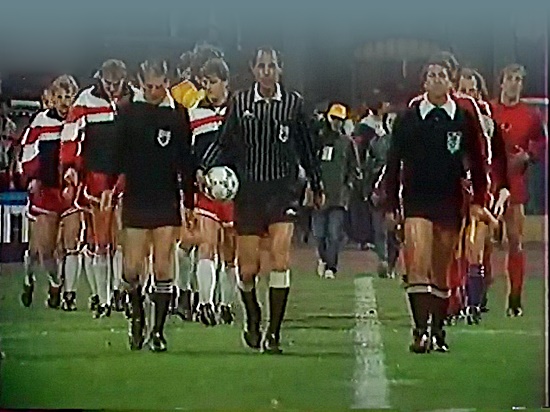
The match First half
While Albania is deep behind in defense and leaves little space, there is no “sweeper” element in this sector, although it is Hodja’s job to be the last defensive player. Only Lekbello has clear instructions for marking, as he is told to look after Furtok. Josa and Gega had to be alert to Polish runs from midfield, or, in Gega’s case, try to shut down Smolarek’s supply. Neither of the full backs seem to push forward, because apparently it’s not in their game plan. Demollari, Minga and Shehu, with the help of Millo and in rare cases of Gega, remain to deal with the attack; Much of our play within the Polish half is left to individual imagination. Shehu looks isolated at times and has a tough job against two giant opponents in the Polish central defence. Demollari is the player most likely to make runs from midfield with and without the ball at his feet, while Millo is often an option out wide on the left. Albania seems to defend the only point it has from the moment of the start. They position themselves deep with their defensive line. The only attacker is Shehu, who will be accompanied by captain Minga when the visitors cross the half-field, as well as Demollari, who will follow their example, and then sometimes Millo, who goes out on the left. However, with the wind in their favour, the Poles aim to damage the Albanians’ hopes of returning home with a draw.
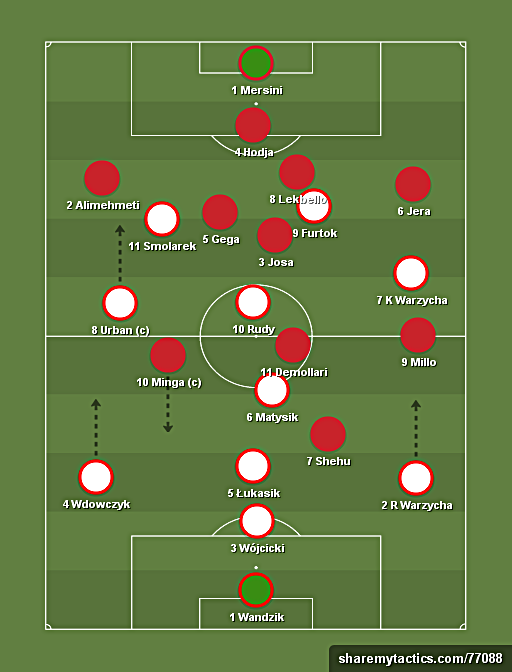
Poland line up in a more or less 4-4-2 formation, with Wójcicki positioned very deep as a sweeper, and Łukasik in a more typical stopper role up front as a centre-back. The two full-backs have no problem getting forward, and Wdowczyk on the left in particular gets into plenty of crossing positions, helped by the fact that Albania’s right-back Alimehmeti, who is making his international debut, is fighting well anyway. in his positioning. So Poland can’t do any damage even from the crosses of the left defender, except in the case when Smolarek rises above everyone and hits a header just short of Mersin’s left post in the middle of the first half. Matysik works as a stabilizer in the Polish midfield and the ball is often moved wide at his feet. The energetic Rudy is in a more attacking capacity in the midfield, a role this replacement for the missing Tarasiewicz. Rudy, the blonde player, seems to have some difficulties with the wind, seen on two occasions by sending crosses too close to Mersin’s goal. He also takes some shots from distance, but even if the Polish number 10 is often at the forefront of the action, he is still not very successful at what he does. The Poles look more dangerous when captain Urban directs the ball forward, he is very capable of passing one or two red shirts. Urban will often seek to find the space between Alimehmet in defense on the right and Hodje as the free one in the center of defense, but Albania quickly becomes aware of this threat and brings Josa to close this corridor. On the other wing, the more forward-looking of the two Warzychas (no tribal connection),
Krzysztof, tries to attract left-back Jera, but even Smolarek, the often wide-moving striker, wants to have his say in these duels, and however, K Warzycha and Smolarek do not work well together. There is little luck on the Polish right. Furtok is the more direct of the two Polish strikers, often followed by the quiet figure of youngster Lekbello, who in the 16th minute, however, is fooled by a quick step from Furtok and has to pull the forward into the box his. Surprisingly, the Romanian referee, who otherwise gives a measured and controlled impression, never had the intention of falling for that “trick” that he probably saw from the attacker of Katovica. It seems to be Salomir’s only fault during the first half, which is equipped with good enough pace but is rarely marred by small fouls. The referee does a good job of keeping the game flowing. The only bad foul worth mentioning is when Gega goes into Krzysztof Warzycha in the 35th minute, but to his credit Warzycha gets up straight away. Poland can count themselves unlucky not to be ahead in the first half. They had at least three chances that could all have resulted in a goal but goalkeeper Mersini, who put in a good performance throughout, had to be alert on several occasions when the hosts tried to take advantage of the strong wind with shots. from 30 and even 40 meters. On the other hand, Shehu was perhaps the closest to scoring, even if his rather “tamed” efforts from outside the box were easily met by Wandzik, who has perhaps appeared “a bit rusty” when faced with crossings. Could this be something that Albania can exploit during the final 45 seconds, especially playing with the wind in their favor? The two points are a necessity for the Polish boys to start these qualifiers as leaders.
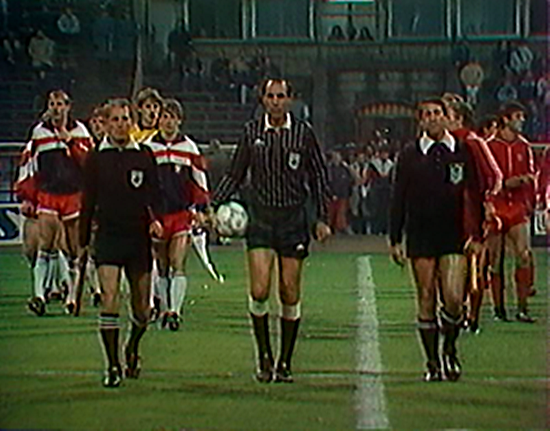
Second half:
Polish strikers Furtok and Smolarek are brought into action in the second half. Łazarek had made a change in the first half: Matysik left, and winger Ziober entered the game. It looked like a multi-attacking transition, with Rudy now going a little deeper, but far from acting as a direct midfielder, the role Matysik had occupied during the first half. Ziober goes wide to the left, trying to create crosses there from the Albanian half of the territory rather than trying to get past Alimehmet to move him from the touchline. Captain Jan Urban does not reach the expected level of presence from a player leading his team. He more or less seems to operate in the left corridor, although still a few meters from the contact, Urban does not seem to be one of the strong elements that could be needed by the destroyed country against the stubborn side of the Albanians. Meanwhile, Rreli did not bring any changes in the second half, not even tactically. He would have been more than satisfied to keep the numbers 0-0 clean, even though sometimes luck was on their side. Poland continue to set the pace, keeping the ball moving up the field and trying to outrun their opponents. With Hodje now lying quite deep in his all-rounder role, there is not much space for the Poles to take advantage of, but Albania resist with a compact defense not only with their number 5: the ball spins and wanders into our half, but unable to to create the necessary openings for the Poles to break the red and black block.
And after the initial pace has slowed down a bit, Albania now even tries to move forward as soon as the opportunity appears to counterattack, and here is one such case Demollari has, which hurts him and should have brought us the advantage goal; it’s only 10 minutes from the start of the second half when he alone with the goalkeeper shoots to the right of Wandzik’s goal. Poland suddenly looks like it can be taken by surprise, exposing itself to the counterattacks of the visitors. However, this opportunity to score from our side is quickly followed by a series of home attacks: Another shot from Rudy, this time it goes away from Mersini for a corner, a hopeless effort is missed by Ziober from distance and then the cross of Krzysztof Warzycha finds Rudi on the edge of the 16-yard box: he shoots and the ball ends up at full-back Robert Warzycha, who shoots high onto the crossbar. Poland threatens, but finds no way to tear down Albania’s walls. Demollari has a long-range shot about halfway through the second half, and perhaps this is where Łazarek begins to realize he needs to rebalance his side: minutes after he brings on midfielder Komornicki for Furtok.
This movement “provokes” the reaction from the audience, which should have thought: “What…? We need a goal and drop a striker for a defensive midfielder? However, Łazarek knows what he is doing. He may have thought he was going to beat Albania by sending another player forward for Matysik in the first half, but he admitted the mistake by bringing on Komarnicki, thus eliminating any threat that an already tired Albania might still have the strength to resist. . Ziober comes in on the right side, Smolarek wide left; they switch to the 4-3-3 scheme. Rudy and Urban dictate the midfield, and our international is now barely visible in the opposing half after the introduction of Komarnicki. And……then there’s the small detail of the winning goal, when Krzysztof Warzycha, the only centre-forward at this point, fires a low left-footed shot past Mersin after Ziober’s cross had been deflected assisted by Urban. The only moment for the Polish captain otherwise he would have remained anonymous in this match. Albania does not have the power to oppose Poland’s advantage.
The national team made a substitution ten minutes before the goal, when the young midfielder Stoja replaced the attacker Shehu, moving Demollari into an attacking position. If anything, it makes them weaker: Stoya was so weak in hand-to-hand challenges that he had no physical presence. Minga had to increase his defensive level even further and Demollari was isolated. However, it was no less than Poland deserved. The Poles, of course, were the superior team, but they had found it very difficult to break an opponent so fortified in defense. For the national team, it was more of what they were used to. Albania could have some players who could handle the challenges of international football quite well.
Conclusion
Poland was definitely the better team and could have won by a bigger margin, but Albania threatened them several times and for as long as they did. we managed to keep the locals out, they always had a chance to upset the Poles with a goal in our favor. The Poles felt it very difficult, since the winning goal came so late in the game, and this is also thanks to the goalkeeper Mersini, who did well to save the goal from the opponents’ attempts. Albania lacked push, but also showed that they have capable players at international level. The national team would have been encouraged by this start in the qualifiers. Poland got the two points and that will have been the most important thing for them that evening. However, they will need to raise their level of play in order to challenge England and Sweden for the top two spots.
Table:
POLAND (4-4-2): Wandzik Jozef, Warzycha Robert, Wojcicki Roman, Lukasik Damian, Wdowczyk Dariusz, Warzycha Krzysztof, Matysik Waldemar, Rudy Andrzej, Urban Jan(c), Furtok Jan, Smolarek Wlodzimierz Substitutions: 46′ enters Ziober Jacek del Matysik Waldemar, 72′ enters Komornicki Ryszard del Furtok Jan Tranier : Wojciech Lazarek
ALBANIA (5-4-1) : Mersini Halim, Alimehmeti Krenar, Hodja Skender, Lekbello Artur, Jera Fatbardh, Gega Skender, Josa Mirel, Millo Letter, Minga Arben(c), Demollari Sulejman, Shehu Ylli
Tranier : Shyqyri Rreli Substitutions : 68′ enters Stoja Anesti exits Shehu Ylli
POLAND – ALBANIA 1-0
Scorer: 78′ Warzycha Krzysztof
Referee: Mircea Salomir (ROU)
Assistants : Ioan Igna (ROU), Vasile Curt (ROU)
© All right Reserved
Brought it to the site by Pjerin. Bj – December 2021
_______________________
Sports Vision / The Hour of Champions since 2013
Follow us: Facebook: https://www.facebook.com/VizionSportiv Dailymotion: https://www.dailymotion.com/kinetografiashqiptareartisporti Blog: https://pierosportvision.blogspot.com/
Discover more from Sports Vision +
Subscribe to get the latest posts sent to your email.


